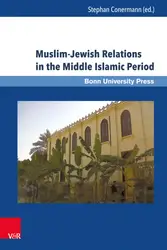This volume is based on the ongoing studies on post-Avicennian philosophy in the context of naturalising philosophy and science in Islam from the 12th to the 14th century – a topic that deserves the special attention of historians of Islamic intellectual history. The contributors address the following questions using case studies: What was philosophy all about from the 12th to the 14th century? And how did Muslim scholars react to it during the period under consideration? The present volume approaches complex philosophical topics from different angles and is structured around six main sections: 1. Historical and Social Approaches to Philosophy, 2. Knowing the Unknown, 3. God, Man and the Physical World, 4. Universals, 5. Logic and Intellect, and 6. Anthropomorphism and Incorporealism.

State formation and the structure of politics in Mamluk Syro-Egypt, 648–741 A.H./1250–1340 C.E.
Winslow Williams Clifford
book
Everything is on the Move : The Mamluk Empire as a Node in (Trans-)Regional Networks
book
The Rise and Fall of a Muslim Regiment : The Manṣūriyya in the First Mamluk Sultanate, 678/1279–741/1341
Amir Mazor
book
History and Society during the Mamluk Period (1250–1517) : Studies of the Annemarie Schimmel Institute for Advanced Study II
book
Mamluk Historiography Revisited – Narratological Perspectives
book
Muslim-Jewish Relations in the Middle Islamic Period : Jews in the Ayyubid and Mamluk Sultanates (1171–1517)
book
The Mamluk Sultanate from the Perspective of Regional and World History : Economic, Social and Cultural Development in an Era of Increasing International Interaction and Competition
book
Domestic Slavery in Syria and Egypt, 1200–1500
Jan Hinrich Hagedorn
book
Living with Nature and Things : Contributions to a New Social History of the Middle Islamic Periods
book
History and Society during the Mamluk Period (1250–1517) : Studies of the Annemarie Schimmel Institute for Advanced Study III
book
Studies on the History and Culture of the Mamluk Sultanate (1250–1517)
book
